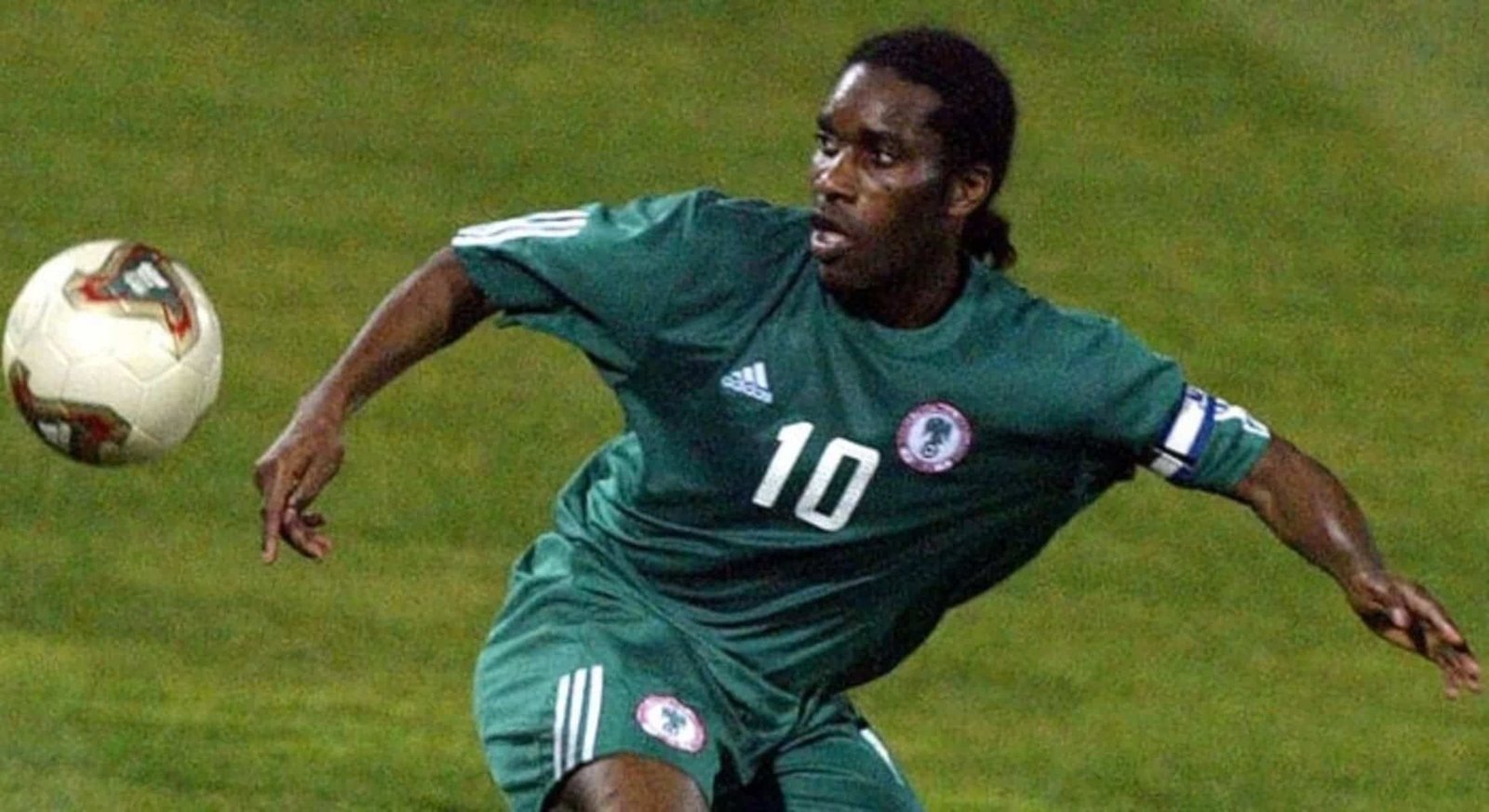Like most Malawian boys, I grew up playing chikulunga; a ball made from tightly wound plastic bags and string. First in Zomba, then on the dusty roads of Luwinga, Mzuzu, we made magic with whatever we could find. Football wasn’t just a game, it was part of the day. You finished chores, grabbed your “ball,” and joined the nearest squad. Our pitch was anywhere flat. Our goals were two bricks. And our rules? Always made up on the spot.
There was a hierarchy to these games. If you brought the ball, you picked the teams. If you were older, you played striker. And if you were small, like I was, you stayed in defense or fetched the ball when it rolled into the maize field.
I remember the first time I played with a mpira opopa, a real, proper football. Smooth. Heavy. Smelled like a tyre factory. It was when one of the kids we played with brought a genuine match ball, and it felt like someone had brought treasure into the school. Khili (short for Christopher), one of our family friends, a known football show-off, decided to try a skill move he’d seen on TV: step on the ball, pose, flick, and roll into a turn.
But the ball wasn’t having it. It rolled.
His foot slipped.
He flew.
His elbow hit the ground before anything else.
And dislocated his arm.
The screaming, the chaos, the rush to get him to a clinic in Veyere, all of it happened in slow motion. I stood there frozen, still holding my breath.
That day, I learned what the famous “stick to the rivers and streams you’re used to” really meant… lol.
I never looked at mpira opopa the same again. It wasn’t just a ball, it had power. Real danger. Real glory.
But that never stopped me from watching football. I enjoyed watching the Flames, the Malawi national team, play. They were our pride. Back then, the jersey was clean. Proud. And although we might not have had the spotlight like South Africa, we had heart and pride.
That generation was different! We had heroes. We had John Maduka, collected, composed, he controlled the midfield with a captain’s calm. Then we had Clement Kafwafwa, the man with a throw-in so long it was practically a corner kick.
And then there was Esau Kanyenda, our star boy. They called him the Black Mamba. Fast, fearless, sharp. He wasn’t just quick on his feet; he had fire in his lungs and ice in his veins. Every run he made looked like a statement. Every ball touch whispered, “I belong here.”
I remember the day Malawi played Nigeria. It wasn’t just a football match, it was a pilgrimage. Nigeria was no ordinary opponent. They were the giant. A continental superpower. A factory of legends. Their squad didn’t walk onto the pitch, they arrived. Jay-Jay Okocha, with feet that could tell stories. Kanu Nwankwo, a big man with ballerina touch. And Taribo West, whose green braids alone could intimidate half a team before kickoff. These weren’t just players. They were characters. Icons. Symbols of swag, flair, and power.
Facing them felt like standing at the base of a mountain with no gear. On paper, it was a mismatch. But when the whistle blew, Esau didn’t flinch. He went toe to toe with Okocha, the magician himself. Gave him a few cheeky moves, just enough to say “I see you, but I’m here too.” Okocha smiled. That kind of smile that holds respect. After the match, he walked up to Esau, took off his jersey, and handed it to him. No theatrics. Just a gesture. A moment. A nod from a master to a rising flame.
That moment was timeless. For us, it was more than football. It was pride. It was a quiet, joyful scream that said: We are not invisible. In that handshake, in that jersey swap, it felt like the torch was passed, not just to Kanyenda, but to Malawi. Because Okocha didn’t just play football, he danced with it. His feet were jazz. His game was poetry.
That was one of the games that made me fall in love with football even more. And luckily, I was falling in love during football’s golden age. Nigeria had already booked their ticket to the 2002 FIFA World Cup. They weren’t just showing up, they were carrying the weight of African hope and pride. They stepped into the tournament as one of the continent’s finest, facing off with the likes of Argentina, Sweden, and England in the group stages. The world was watching, but the results didn’t go in Nigeria’s favour, they bowed out early.
But Africa wasn’t done. There was a different kind of fire that lit up the pitch, wilder, louder, and somehow more unexpected. Senegal had arrived at their World Cup debut. They opened the tournament by beating France, yes, France, the then reigning champions. Just think about that. Africa walking into the global stage and flipping the script from Day One. A team with no big European superstars. No storied history. They weren’t expected to win, let alone be noticed. El Hadji Diouf was everywhere. He was untouchable. He had energy and flair. He didn’t just play, he charged.
That Senegalese team ran all the way to the quarterfinals and made the whole continent stand on its feet.
That World Cup… man. I was ten or eight at the time (very long story), but I still remember it like it aired yesterday. It was unlike anything I’d ever seen before. That was the first time I understood what people meant when they said football was more than just a game. That World Cup wasn’t just a tournament, it was an event. Pure magic.
The games would air either too early in the morning or too late, we found a way to watch. We’d crowd into the sitting room, sitting on the floor or standing behind curtains, just to catch a glimpse of the action. It was sacred and fun. And then there were also the little joys that made the World Cup feel even more personal, zampiki; bubble gum wrappers with football stickers inside. Opening one felt like Christmas morning. Some kids collected them like gold, the rare ones, the shiny ones. We had sticker notebooks full of our favourite players. If you had a full squad or a shiny Beckham or Ronaldo, you were king at school.
The tournament continued with France, the giants, crumbling without scoring a single goal. I remember their bald, mystical goalkeeper, Fabien Barthez, who looked like he could double as a nightclub bouncer and a villain kung-fu monk from a comic book. He had the aura of a ghostbuster. There were even rumours that he whispered to the ball, talked to the goalposts, and stared into the eyes of strikers until they missed. He used to take free kicks and had that crazy stare, we thought he could see the future. And we believed it all. That’s how real it felt.
Brazil? They were from another planet. They were on a roll. Ronaldo came back from injury with that weird half-moon haircut, it looked like a mistake, like he forgot to finish, but it became an iconic trend overnight. He silenced the world with those goals. Ronaldinho chipped England’s goalkeeper from halfway across the pitch, then acted like it was no big deal. Rivaldo would act like he had been hit in the face when the ball touched his leg, drama, finesse, madness. They didn’t just play football, they performed it. It was beautiful.
Then came England. A heartbreaking story. The team that always believed this was their year. Every tournament they came in with hope. Every tournament they left with excuses. But they had him; David Beckham.
Man, Becks was different. Clean slicked fade. Polished signature boots. And the way he wore that England jersey, tucked just right, sleeves tight. His confidence was louder than the commentary. He wasn’t just a footballer, he was an icon. After being blamed for England’s exit in ’98, he came back to captain the squad, and he wore that captain’s armband like it was made for him. And when he stood over a free kick, you just knew something cinematic was about to happen.
I remember when he took that revenge penalty against Argentina, I held my breath. It wasn’t just a goal, it was a man rewriting his own story. It felt like closure. Redemption. Cinema. Beckham carried the pressure of a nation on his shoulders… and made it look graceful. He was grace and grit rolled into one.
So when he signed for Real Madrid after the World Cup, it was like watching your favourite superhero join the Avengers. My little football heart exploded. I mean, they already had Zidane, Figo, Ronaldo, Roberto Carlos, Raúl… and now add Beckham? The lineup was unreal. It looked like a team you’d build in a video game with unlimited coins. The Galácticos were forming, and everyone expected them to conquer everything in sight.
But then… they didn’t.
Between 2004 and 2006, the passes were beautiful. The jerseys sold. The stadiums stayed full. But the trophies? Silent. This football fantasy, this star-studded Real Madrid team, failed to win a single major trophy.
How? When they had talent, money, and fans?
They had no balance. Because football, like life, doesn’t reward shine alone. Behind the scenes, there was chaos. They had too many stars, not enough structure. Too many soloists, not enough harmony. Everyone wanted the limelight. No one wanted to defend. The midfield was soft. Managers came and went like guests at a wedding — the ones who just show face. The team was a luxury car with no steering wheel.
Even Raúl, the club’s heart and soul, later admitted: “We had everything… except the balance.”
It was a lesson I didn’t fully understand back then. But looking back now, it couldn’t be clearer. That Galácticos squad, with all their flash and flair, taught me something that still sticks with me today: too many stars in one place doesn’t guarantee success.
Because talent alone isn’t enough. You can stack the deck with brilliance, but if no one’s doing the ugly work, covering the gaps, staying disciplined, playing for the team instead of the cameras, you’re just decorating the pitch, not dominating it.
It’s like trying to cook nsima with five people all trying to stir at once. Everyone’s strong. Everyone’s sweating. But the pot ends up on the floor.
Or like planning a family event where every uncle wants to be the MC. Shiny shoes. Big voices. No program.
And that’s how life is. Sometimes, everyone wants to be the star striker. Few want to track back and mark the opponent. But without those unglamorous jobs, the whole thing collapses, no matter how good the selfie looks.
So whether you’re building a football team, a business, a dream project, or just trying to figure out life, remember: balance beats brilliance. Glue beats glitter. And no matter how many Galácticos you gather… someone’s got to defend.
As for me?
I lost the spark and love for the game after that, hoping it comes back one day. But I still remember Christopher’s fall that day he tried to step on that real football.
Sometimes, you have to respect the ball.
Because even the prettiest ones can humble you… if you don’t approach them properly.


